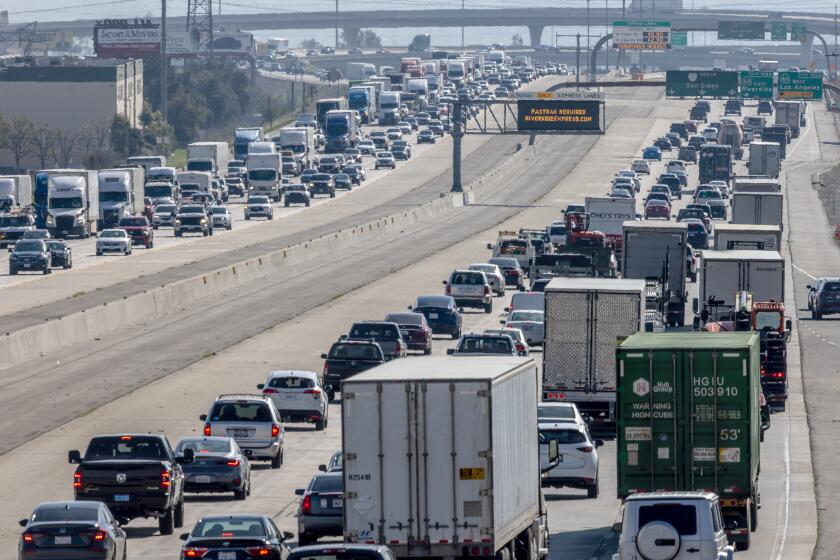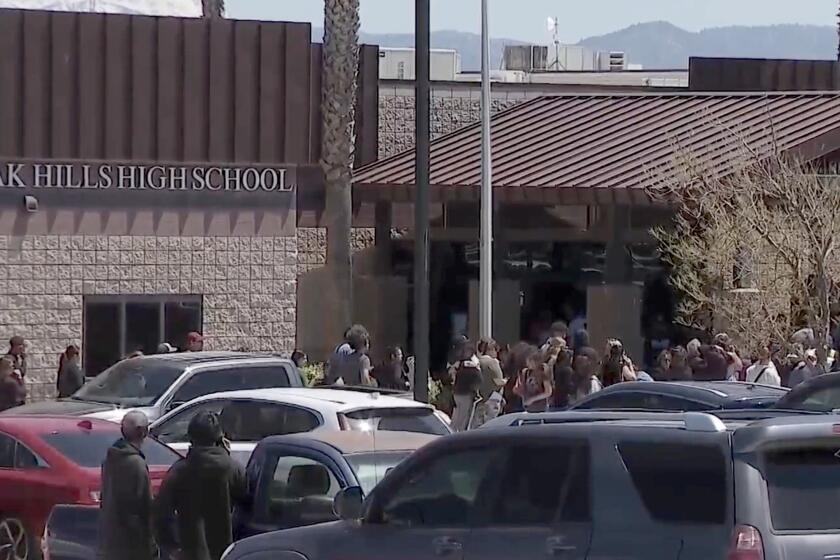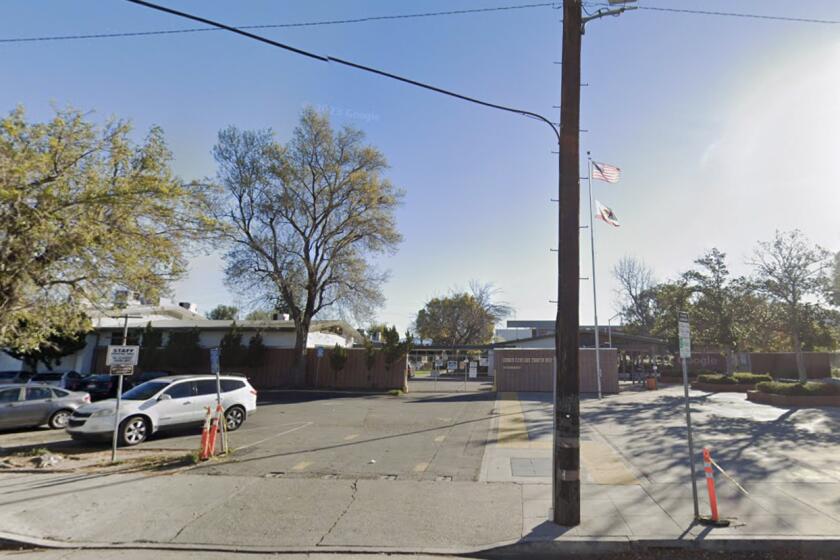Crime a Slippery Slope in Election
When the candidates vying to be Los Angeles’ next mayor talk about crime, they often seem to be describing different cities.
Mayor James K. Hahn describes steep declines in crime rates and a resurgent police force. His opponents cite rising crime in some neighborhoods and Hahn’s failure to come even close to the 1,000 additional LAPD officers he promised voters four years ago.
Finding statistics to back their conflicting claims comes down to timing.
Hahn starts counting in 2002 -- his second year in office and the year he forced Bernard C. Parks out as police chief.
Using that year as his baseline, Hahn touts double-digit drops in violent crime and homicides. The improvements came from his “tough choices,” he says.
Parks, now a city councilman who is running against Hahn, prefers to talk about 1998 and 1999. In that period, under his watch, the city -- and much of the rest of the nation -- posted the lowest crime rates in years. Crime then was as low or lower in many categories as it is now, he says. He doesn’t mention that crime rates started rising before he lost his job.
Bob Hertzberg has taken a more microscopic approach, posting select figures on an interactive map on his campaign website. His figures emphasize increases in some crime categories even in neighborhoods where overall crime is down.
Although none of the statements are untrue, all are incomplete. The dueling numbers underscore how politicians, who understand the power of public safety concerns to get out the vote, try to shape public perceptions to their advantage.
Overall, serious crime citywide in 2004 was less than in 1998 -- the best year under Parks. Last year, 162,252 serious crimes -- a category that includes homicides, robberies and burglaries -- were reported. In 1998, the LAPD confronted 167,087 serious crimes.
Those who study crime trends caution that comparing numbers from year to year can mislead. Meaningful change can be tracked only over longer periods, they say. For example, in 2004, the number of homicides was flat compared with 2003, although the number of shootings declined more than 9%.
“The problem is when the crime rate goes down, they like to claim too much credit, and when the crime rate goes up, there is too much finger-pointing and blame,” said James Fox, professor of criminal justice at Northeastern University in Boston.
What drives crime up or down has long been a matter of debate. Most criminologists say police are only one factor among many, such as the economy, joblessness and quality of education.
Politically, however, the police force is the factor for which voters are most likely to hold elected officials accountable. Hahn has hung his record as a crime-fighter -- and much of his reelection chances -- on his selection of William J. Bratton to take over a demoralized LAPD tainted by the Rampart Division corruption scandal.
Hahn’s reliance on Bratton to boost his campaign is no accident. The chief remains considerably more popular than the mayor. In a Times poll taken Feb. 22-27, 63% of the registered voters surveyed said they approved of how Bratton was handling his job; 20% disapproved.
When Hahn took office in June 2001, the LAPD was losing officers at an alarming rate.
At its largest, in 1998, the department had 9,777 officers. That number was reached through an aggressive effort by then-Mayor Richard Riordan to add 1,500 new officers (half of what he had promised when he first ran).
But by the time Hahn became mayor, the force had fallen to 9,018 sworn officers, according to police officials. Police union officials and others have said that Parks’ unpopularity among officers was a factor. Officers who left the department cited better work schedules in nearby jurisdictions, a cumbersome LAPD disciplinary system and low morale.
On the day Parks left the job in May 2002, there were 8,867 sworn officers.
As of Wednesday, the force was up to 9,131 officers. Arrests, which had fallen, have risen by about 18% since 2002.
Though Hahn and Bratton can claim to have reversed the downward trends, the overall gain is just slightly more than 100 officers since the day Hahn became mayor, far less than the 1,000 additional officers he promised during his campaign.
Bratton has argued that the city ultimately needs 12,000 officers to be properly patrolled.
Politicians have struggled for years to get the political backing and money to greatly expand the force. Currently, the public’s approval of Bratton has not translated into support for a goal that he and the mayor have sought -- increasing the city sales tax to pay for more officers.
In the Times poll, only 26% said the city needed to hire 1,200 more officers and raise taxes to pay for them -- the proposal Hahn tried to place on the ballot this year. A majority, 52%, saidthe city needed more police but could afford to meet that goal without the tax increase. An additional 18% said more police were not needed.
Hahn’s opponents agree that a new tax is not needed to expand the force and have offered other strategies. They charge that the mayor has done too little to find more money in the city’s $5.3-billion budget to expand law enforcement.
Hertzberg has said that he will squeeze more officers out of the existing city budget, noting that revenue is expected to rise in coming years.
Councilman Antonio Villaraigosa says the city can expand the force through budget savings and his plan to borrow against future tax refunds from the state. He and Hahn have said they each would put 720 officers through the Police Academy in the next year if elected. Police officials say that number is about the academy’s annual capacity.
Parks has focused his criticism on flexible work schedules approved by Hahn. The changes, which the police union pushed hard for, allow officers to work either three 12-hour shifts or four 10-hour shifts each week.
Parks says those schedules impede law enforcement.
Assistant Chief George Gascon, who runs daily operations, said the shifts had not diluted his ability to keep officers on the streets. Ultimately, he said, retaining officers who might otherwise take jobs elsewhere outweighs other concerns.
“It’s a huge retention factor, if you factor in how much it costs to hire and train a police officer,” Gascon said. “So, as an employer, we have to find a balance between the realities of the marketplace and our needs to deploy people.”
More to Read
Start your day right
Sign up for Essential California for news, features and recommendations from the L.A. Times and beyond in your inbox six days a week.
You may occasionally receive promotional content from the Los Angeles Times.







